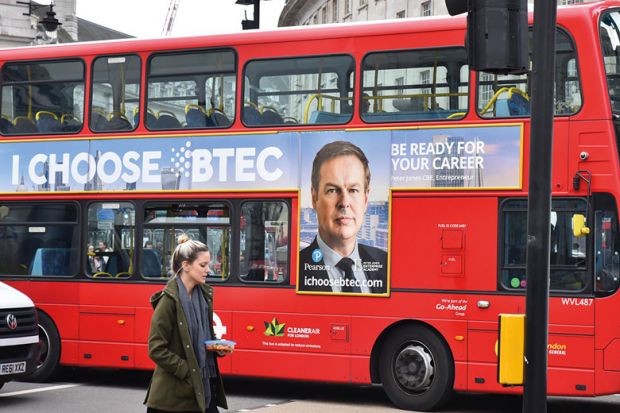Defunding of vocational BTECs in England could damage a “critical alternative route to higher education”, hit disadvantaged and ethnic minority students, and accentuate the early specialisation that is “one of the great weaknesses of English education”, experts warn.
The Westminster government’s controversial move to defund Level 3 BTEC and other “applied general” qualifications, where they are deemed to overlap with new T level vocational qualifications, is scrutinised by 11 authors in a Higher Education Policy Institute paper published on 28 April, Holding Talent Back? What is next for the future of Level 3?
Although the government has responded to criticism – including from a cross-party group of former education ministers in the House of Lords – by modifying its plans, “it has still to be decided which BTECs will survive and how many students will be able to study them”, meaning that the qualifications “still face a real threat”, notes former Conservative universities minister Lord Willetts in his foreword to the paper.
In the schools sector, multi-academy trust Ark offers BTEC extended diplomas as “the qualification of choice on our professional pathways programme”, which is “a high-quality alternative to A levels…aimed at students whose potential is not being realised through a traditional, purely academic, exam-based curriculum,” write Sam Freedman, senior adviser to Ark and a former adviser in the Department for Education, and Sarah Taunton, Ark’s head of programme for Professional Pathways, in their essay.
They also say: “Year on year, 40-plus per cent of professional pathways leavers progress to highly selective universities, showing this kind of programme can offer a route to higher education, particularly for students from non-traditional backgrounds and challenging socio-economic contexts.
“BTECs are therefore providing a critical alternative route to higher education for our students. We need to avoid returning to a narrow system…Our research has shown that, given the right preparation for transition, which we provide in our professional pathways programme, BTEC students can make better choices and go on to be equally as successful in higher education as A-level students.”
The essay by Graeme Atherton, head of the Centre for Inequality and Levelling Up at the University of West London and director of the National Education Opportunities Network, highlights data showing that “around a quarter of students entering higher education from the most disadvantaged neighbourhoods (the POLAR quintile 1 areas) were either solely taking BTECs, or A levels and BTECs”.
Meanwhile, “nearly one-third of all black students entering higher education in 2019 did so with at least one BTEC”, he writes.
There is thus a risk that the government’s changes at Level 3, combined with potential moves to introduce minimum entry requirements and student number controls in higher education, “would have deleterious implications for other elements of government policy such as social mobility and levelling up”, Professor Atherton adds.
Lord Willetts describes BTECs, which “map sectors rather than occupations”, as “a great alternative to the intense specialisation of A levels and T levels”.
“Many of us who have served as education ministers have come to see that early specialisation is one of the great weaknesses of English education,” he writes.
“It would be wrong to deprive young people of the opportunity to do BTECs.”
Register to continue
Why register?
- Registration is free and only takes a moment
- Once registered, you can read 3 articles a month
- Sign up for our newsletter
Subscribe
Or subscribe for unlimited access to:
- Unlimited access to news, views, insights & reviews
- Digital editions
- Digital access to THE’s university and college rankings analysis
Already registered or a current subscriber?










